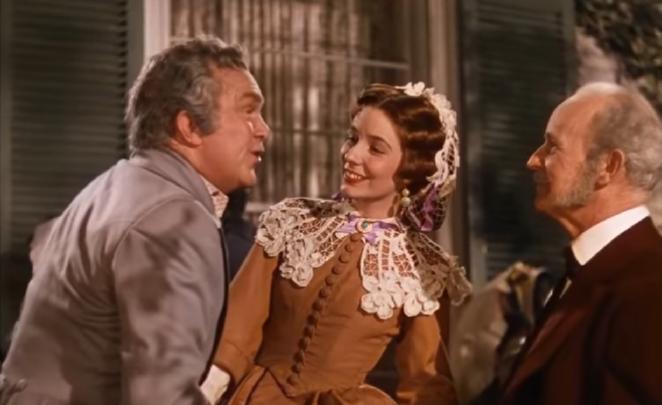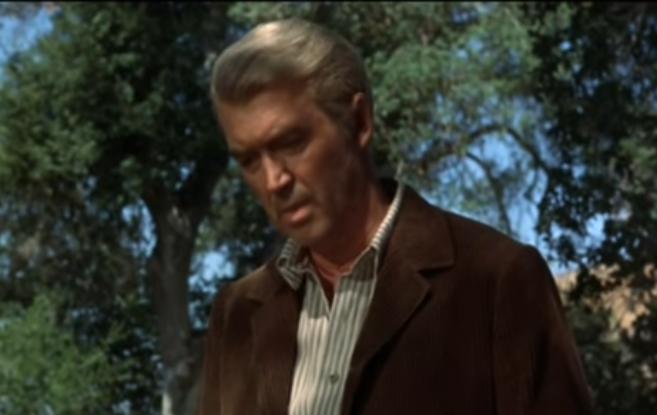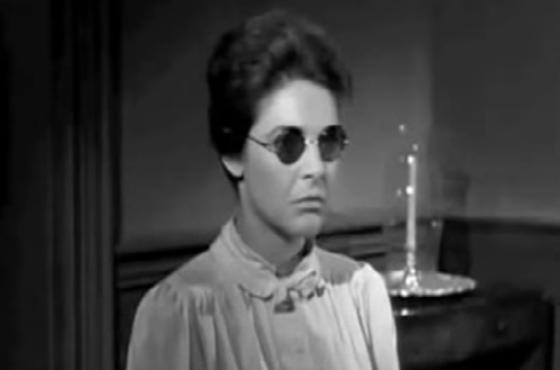DeLoggio Achievement Program
Selection of and Preparation for College and Professional Programs
Culture by Cinema
The Civil War
I probably shouldn't be writing this section of my web page. I'm strongly biased against the South, and think most portrayals of the Confederacy are absurdly romanticized, excluding the realities of slavery and the War. Nonetheless, if you're going to understand the United States, its social history and its legal evolution, you have to start here. So watch the movies and form your own opinion, and if it's different from mine, well, I warned you. If you want different perspectives, Wiki has a list of over 100 films about the Civil War.
Gone With the Wind
"Gone with the Wind" shows a surprisingly accurate picture of the Old South and the Civil War; but these two images are surprisingly at odds with each other.
The Old South is portrayed as a time of the genteel southern aristocracy:
Yet the Battle of Atlanta, showing the hundreds of wounded soldiers after Gen. Sherman destroyed the city, was just as much a reality.
Both of these images are part of the "proud Southern heritage" still celebrated by people wielding rebel flags. They want to regain their birthright as represented by the fancy dress balls and the slaves who made them happen, and they want to celebrate their proud soldiers slain in battle. The only problem is that most of the North doesn't think the goal was worth the price, either in soldiers or in slaves.
Shenandoah
"Shenandoah" shows a view of the war from a border state, one in which families and friends are torn apart over the dual issues of the Civil War: slavery and secession.
Glory
"Glory" is certainly a movie that deserves mention. The story of the Black Union soldiers who fought during the Civil War, the particular vengeance they faced from the Confederate troops, and the antipathy they faced from their northern compatriots are an important part of this history. It particularly shows that many Union soldiers who were fighting to keep the nation from being divided didn't actually care about the welfare of Blacks or slaves, and were often just as racist as their Confederate enemy.
Unfortunately, I have never been able to watch more than the first five minutes of this movie. As soon as the first soldier's head explodes like a pumpkin, I turn off the movie. But I think the nobility of the black soldiers deserves our respect. I prefer to show that respect in a song written by Sojourner Truth, the marching song of the Black Union soldiers:
The Miracle Worker (1962)
"The Miracle Worker" is not a story about the Civil War. It's a story about two celebrated women. Helen Keller was the first deaf dumb and blind person to learn to read Braille, to eventually learn to speak in a limited fashion, and to graduate from Radcliffe College. Annie Sullivan was her teacher, the woman who managed to reach into a child's soul and plant an impossible idea. [According to Wiki, it was Mark Twain who named Annie Sullivan "the miracle worker," and it was also he who arranged for Helen Keller, and Ms. Sullivan as her companion, to attend Radcliffe College.]
Throughout the movie there is a strong subtext of North versus South. Annie Sullivan comes from Boston to Florence, Alabama, in the late 1880s. Arguments about the North and the South, and reruns of battles much as our modern-day men rehash football games, pepper the dialogue of the movie, showing that the southern aristocracy may have lost the war, but they haven't given up the battle.
There have been two later versions of this story, but I wouldn't vouch for either of them telling the story of Helen Keller or the story of the Civil War. In this version, both actresses won Academy Awards; but more importantly, it shows the urgency of the Civil War in the lives of people 20 years later.
| Copyright | Take me to Home Page |




